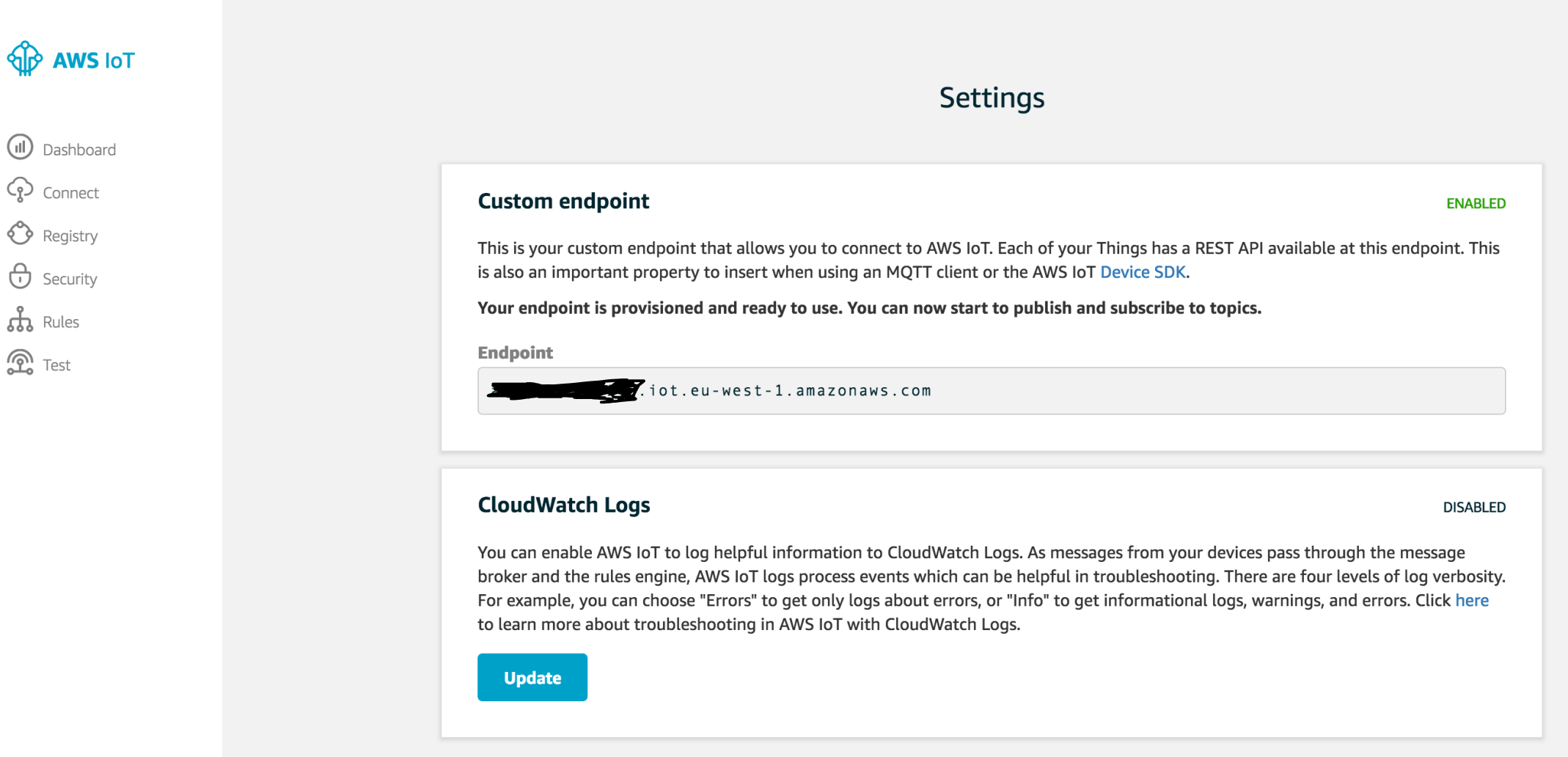For anyone interested in the solution with CloudFormation Custom Resource, I wrote a simple Lambda and a CF template that provides an IOT endpoint address to other CF stacks.
template.yaml
AWSTemplateFormatVersion: '2010-09-09'
Transform: 'AWS::Serverless-2016-10-31'
Resources:
IotEndpointProvider:
Type: 'AWS::Serverless::Function'
Properties:
FunctionName: IotEndpointProvider
Handler: iotEndpointProvider.handler
Runtime: nodejs6.10
CodeUri: .
MemorySize: 128
Timeout: 3
Policies:
- Version: '2012-10-17'
Statement:
- Effect: Allow
Action:
- iot:DescribeEndpoint
Resource:
- '*'
IotEndpoint:
Type: 'Custom::IotEndpoint'
Properties:
ServiceToken: !GetAtt IotEndpointProvider.Arn
Outputs:
IotEndpointAddress:
Value: !GetAtt IotEndpoint.IotEndpointAddress
Export:
Name: IotEndpointAddress
iotEndpointProvider.js
var aws = require("aws-sdk");
exports.handler = function(event, context) {
console.log("REQUEST RECEIVED:\n" + JSON.stringify(event));
// For Delete requests, immediately send a SUCCESS response.
if (event.RequestType == "Delete") {
sendResponse(event, context, "SUCCESS");
return;
}
const iot = new aws.Iot();
iot.describeEndpoint({}, (err, data) => {
let responseData, responseStatus;
if (err) {
responseStatus = "FAILED";
responseData = { Error: "describeEndpoint call failed" };
console.log(responseData.Error + ":\n", err);
} else {
responseStatus = "SUCCESS";
responseData = { IotEndpointAddress: data.endpointAddress };
console.log('response data: ' + JSON.stringify(responseData));
}
sendResponse(event, context, responseStatus, responseData);
});
};
// Send response to the pre-signed S3 URL
function sendResponse(event, context, responseStatus, responseData) {
var responseBody = JSON.stringify({
Status: responseStatus,
Reason: "See the details in CloudWatch Log Stream: " + context.logStreamName,
PhysicalResourceId: context.logStreamName,
StackId: event.StackId,
RequestId: event.RequestId,
LogicalResourceId: event.LogicalResourceId,
Data: responseData
});
console.log("RESPONSE BODY:\n", responseBody);
var https = require("https");
var url = require("url");
var parsedUrl = url.parse(event.ResponseURL);
var options = {
hostname: parsedUrl.hostname,
port: 443,
path: parsedUrl.path,
method: "PUT",
headers: {
"content-type": "",
"content-length": responseBody.length
}
};
console.log("SENDING RESPONSE...\n");
var request = https.request(options, function(response) {
console.log("STATUS: " + response.statusCode);
console.log("HEADERS: " + JSON.stringify(response.headers));
// Tell AWS Lambda that the function execution is done
context.done();
});
request.on("error", function(error) {
console.log("sendResponse Error:" + error);
// Tell AWS Lambda that the function execution is done
context.done();
});
// write data to request body
request.write(responseBody);
request.end();
}

